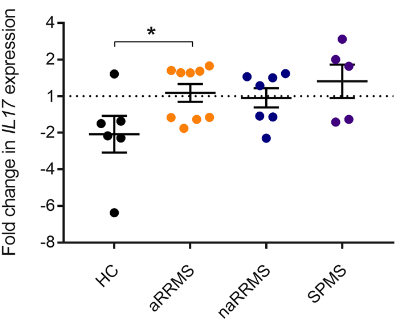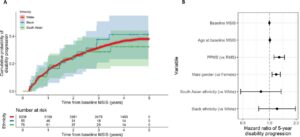
“Differential effects of IL4I1 protein on lymphocytes from healthy and multiple sclerosis patients.”
Stephanie E. Davis, et al. – Georgetown University.
In this study, interleukin-four induced one (IL4I1) induced lymphocytes from healthy controls to favor a regulatory T-cell fate over the pro-inflammatory Th17 fate, replicating findings using mouse lymphocytes. Injection of IL4I1-treated lymphocytes into mouse demyelination lesions promoted remyelination. While lymphocytes from patients with MS produced lower amounts of IL4I1, treatment with IL4I1 did not lower IL17 as seen in healthy donor cells, suggesting an inability to respond to IL4I1 signaling.
This study leaves open the question of whether lymphocytes of patients with MS are intrinsically less responsive to IL4I1, representing a possible risk factor, and/or if responsiveness is lost as part of MS pathology. Future studies using lymphocytes derived from patient induced pluripotent stem cells, which retain a patient’s genetics but not their disease-induced phenotypes, could address this question.




